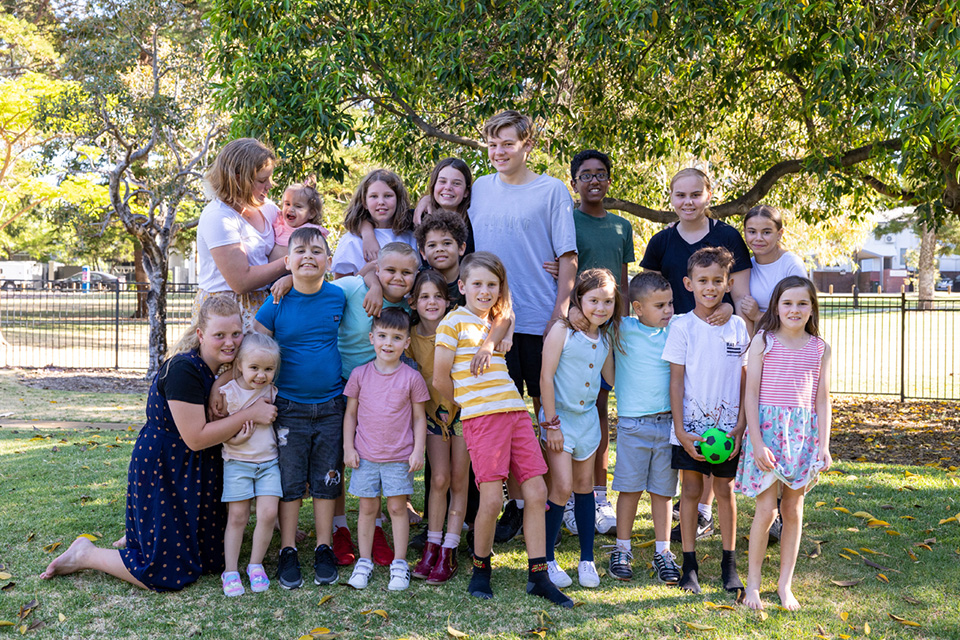Search
Research
Movement difficulties in children with neurodevelopmental disorders: considering a transdiagnostic approach to classificationChildren with neurodevelopmental disorders often experience difficulties in acquiring and executing movement skills. Although the motor profiles of neurodivergent children frequently overlap, rigid conceptual distinctions between diagnostic labels have been imposed by traditional categorical approaches to taxonomy. An alternative transdiagnostic approach is proposed to better represent the similarities between presentations.
Research
Causal Impact of COVID-19 Lockdowns on the Mental Health of Australian ChildrenThis project investigates the prevalence, risk factors, and causal impact of COVID-19 lockdowns on mental health disorders, self-harm, and suicide among Australian children.

The Human Development and Community Wellbeing (HDCW) Team focuses on improving outcomes for children, family, and the community.

News & Events
Landmark language study draws to a close - but the work is just beginningA joint initiative between The Kids Research Institute Australia, The University of Western Australia, the University of Kansas and Nebraska University, it is the world’s only study to conduct such a detailed assessment of language and literacy development from infancy through the formative adolescent years.
Research
School leaders’ and staff wellbeing is critical for student success. Our Schools- Our Future Research PaperWhile most education professionals enjoy the many opportunities working in schools and with students provides, they are also exposed to numerous stressors, such as excessive workload, complex and challenging student needs and responding to parent demands can compromise their wellbeing. Frequent exposure can lead to burnout, stress, health and relationship problems and fatigue, which can have a negative impact on their motivation, job satisfaction and their likelihood of remaining in the profession. This research paper provides recommendations and practical actions to protect and promote the wellbeing of school leaders and staff, and to support staff who may be experiencing difficulties with their mental health and wellbeing.
Research
Improving equity through school leadership and student wellbeing. 2021. ACEL Monograph #61 - ‘The William Walker Oration 2021Citation: Cross D. Improving equity through school leadership and student wellbeing. 2021. ACEL Monograph #61 - ‘The William Walker Oration 2021.
Research
Cohort Profile: Growing up in Australia: the Longitudinal Study of Australian Children (LSAC)Steve Zubrick FASSA, FAAMHS, MSc AM PhD Honorary Emeritus Research Fellow 08 6319 1409 Stephen.zubrick@thekids.org.au Honorary Emeritus Research
Research
Prenatal and Infant Reports and Child Protection Involvement: A Longitudinal Cohort StudyIn Australia, infants have the highest rate of child protection involvement. Many jurisdictions in Australia and internationally have introduced policies for prenatal planning and support, however little is known about outcomes of infants reported prenatally. This study is the first to use cross-jurisdictional, individual-record data to examine child protection pathways associated with prenatal and infant reports.
Research
Online Health Literacy Resources for People With Intellectual Disability: A Grey Literature Scoping ReviewPeople with intellectual disability experience higher rates of physical and mental health problems than those without intellectual disability. Health literacy includes accessing, understanding, appraising and applying health information. Improving health literacy is associated with better health outcomes. The internet is a primary source of health information for many people. This study aimed to evaluate available online health resources for people with intellectual disability and their families to understand information gaps.
Research
Intrafamilial Maltreatment of People with Intellectual Disability: A Scoping ReviewPeople with intellectual disability experience a greater risk of maltreatment than people without intellectual disability. Maltreatment by family members presents additional risks, including greater possibilities for concealment. This scoping reviewResults were summarized in both narrative and tabular formats summarizes extant knowledge about the familial maltreatment of people with intellectual disability and identifies gaps in the literature.
